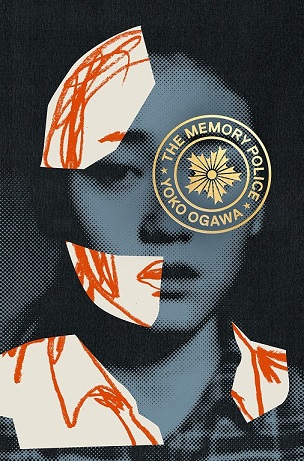I never planned to read The Memory Police by Yoko Ogawa, yet it’s surprisingly calming and easy it was to read. In this The Memory Police review, I’ll try my best to capture my initial responses and thoughts.
Title: The Memory Police
Author: Yoko Ogawa
First published: 1994
Finished reading: 24 January 2021
First line: I sometimes wonder what was disappeared first—among all the things that have vanished from the island.
Note that I read the Indonesian translation done by Lingliana, published through Gramedia Pustaka Utama. Therefore, my review and response is based on that.

The Memory Police Review
Many have described this book as “Orwellian”, and yes, the world that Yoko Ogawa paints is unmistakably dystopian with a draconian authority that stifles anyone who threatens to disrupt the established order. The population of an unnamed island suffers from collective amnesia, in which objects are disappearing along with their meanings and any memory of them.
These things don’t literally disappear into thin air, but their memories do. Every time a “disappearance” takes place, the object simply holds no more meaning in the people’s minds. When birds disappears one morning, they all fly away, leaving empty cages and observatories behind. People throw roses into the river, burn photographs, and the Memory Police sweeps clean anything left.
The Problem with Forgetting What You Don’t Know
So how do people with live with these “disappearances”? Won’t they feel an absence after something that used to be commonplace cease to exist , literally and figuratively? These questions are actually what drew me to finally start this novel. I wanted to see how Ogawa tackles such an interesting premise.
The answer is unsettling. When your mind is used to forgetting, you heart compromises by removing all emotions attached to those memories. You can’t feel the sadness because there’s simply nothing to mourn.
“But as things got thinner, more full of holes, our hearts got thinner, too, diluted somehow. I suppose that kept things in balance. And even when that balance begins to collapse, something remains. Which is why you shouldn’t worry.”
It makes sense when they put it that way, but the notion is also terrifying. The language becomes hypnotic when familiar objects are described by someone who don’t remember what it is. Ogawa evokes an eeriness in the everyday, and this makes me look at mundane items in a new light.
“Long ago, before you were born, there were many more things here,” my mother used to tell me when I was still a child. “Transparent things, fragrant things . . . fluttery ones, bright ones . . . wonderful things you can’t possibly imagine.
Emeralds become worthless stone. Perfume just smells like something unidentifiable. Photographs are nothing but “scraps of paper”. Novels consist of meaningless jumble of words.
Realistically, we’ll never experience anything like this. Still, I can’t help but imagining a reality where our memories mean so little. The protagonist tries to explain that forgetting objects do not feel like anything; it’s something that just happens. After all, it’s impossible to feel upset when your mind can’t conceive the idea of the thing you’re supposedly missing out on.
Her editor friend, who is one of the few people with the ability to remember everything, could never understand this. In a way, I don’t think we can either.
The Haunting Charms of The Memory Police
The Memory Police has a particular appeal that I’ve only ever found in other Japanese-written works. Although, it’s not quite like the surrealism of Murakami’s books. Ogawa’s novel is calming and haunting, extremely thought-provoking while being weirdly easy to read at once.
Here, you won’t find exciting plot and well-developed characters. But that doesn’t make The Memory Police any less impressive. For me, this is the kind of book you read before bed, or on a rainy day.
The protagonist’s editor friend is desperate to help her keep her memories. He wants, more than anything, for her to cling on these “disappeared” objects.
“They may be nothing more than scraps of paper, but they capture something profound. Light and wind and air, the tenderness or joy of the photographer, the bashfulness or pleasure of the subject. You have to guard these things forever in your heart. That’s why photographs are taken in the first place.”
This sorrowful narrative becomes even more poignant when our narrator, a novelist, goes through the disappearance of novels:
“I thought I could hear the sound of my memory burning that night.”
Final Verdict
My final say is that it’s a great book! If I had to rate it, it would be 3.5. It’s truly an enjoyable read. If you want something quick and cozy, then here’s your winner.
Unfortunately, I can only read so many “plotless” books without getting bored. I’ll almost always prefer an exciting, page-turning read, which is why this won’t end up on my favorite shelf.
Indeed, The Memory Police wrestles with themes of emptiness as it urges its readers to ponder on the meaning of life and memories.
“Maybe there’s a place out there where people whose hearts aren’t empty can go on living.”
I hope this The Memory Police review has been helpful! If you want to get into Japanese Literature, check out Han Kang’s The Vegetarian.
